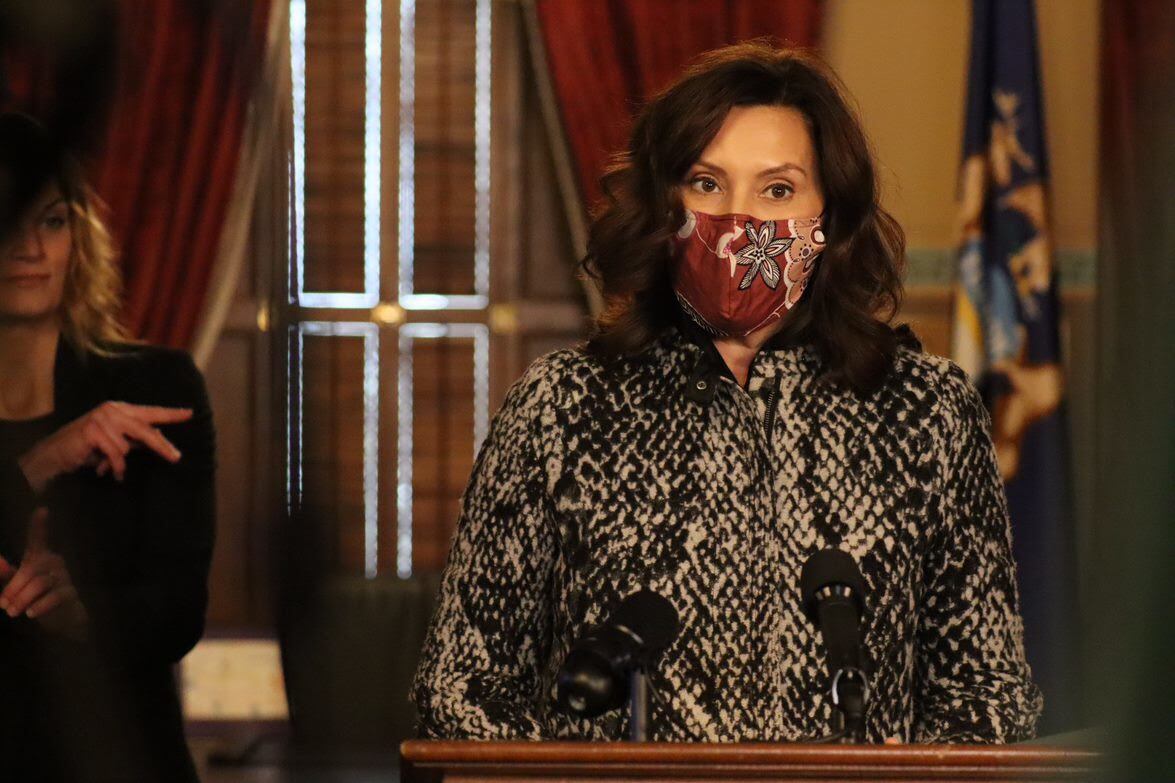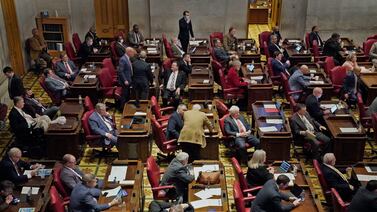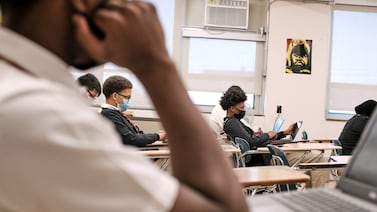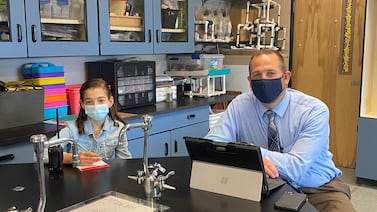With COVID-19 cases declining in Michigan and teachers set to receive vaccines beginning Monday, Gov. Gretchen Whitmer issued her first specific recommendation about whether Michigan classrooms should be open.
Whitmer urged K-12 schools to offer an in-person learning option by March 1, if not earlier, during a press conference on Friday.
“The value of in-person learning for our kids is immeasurable and we need to do everything we can to help our kids get the great education they need, and to do it safely,” she said, adding that young students, students with special needs, and English learners especially struggle with virtual learning.
Whitmer asked schools to offer in-person learning, but did not require it. Local school boards may still choose to continue fully virtual learning.
Whitmer hadn’t previously called on schools to open their classrooms to students during the pandemic. Her recommendations came after President-elect Joe Biden vowed that schools will reopen within the first 100 days of his presidency. Over the summer, her administration released recommendations for reopening classrooms safely, but did not take a position on whether that was the right path.
At that time, the issue of school reopening had become bitterly partisan after President Donald Trump and U.S. Education Secretary Betsy DeVos made an unsuccessful effort to force schools to reopen.
Some teachers in many areas in the state have objected to in-person learning due to safety concerns. In Detroit, teachers sought to block school buses that were bringing the first students back to classrooms this summer.
Leaders of the state’s education unions, including its largest teachers union, said in a statement that “it’s time to work together to plan how to safely reopen schools.”
However, they stopped short of calling on schools to open by March 1, saying reopening decisions and the accompanying safety protocols must be made locally.
“As statewide organizations, we’re committed to supporting our local members in that planning process toward Gov. Whitmer’s March 1 goal of as much in-person learning as feasible, keeping the best interests of students at heart and with a close eye to everyone’s health and safety.”
State Superintendent Michael Rice said in a statement that he believed the new recommendations would encourage more students and teachers to return to their classrooms.
“The guidance provided today will help get our students, teachers, and other staff members safely back into our schools and engaged in learning, which has been disrupted over the past 10 months,” he said, adding:
“In-person instruction matters,” Dr. Rice said. “Learning at a distance is not a substitute for in-person instruction for most children.”
Asked whether Whitmer’s new recommendations would increase the number of schools offering in-person instruction, Paul Liabenow, executive director of the Michigan Elementary and Middle School Principals Association, said he hopes so.
“I hope that schools will provide an in-school option if it is at all feasible, per the governor’s guidance, unless community COVID-19 spread is growing in their district,” he said.
Bob McCann, executive director of the K-12 Alliance, a statewide school advocacy group, welcomed the recommendations, but said in a statement that widespread distribution of the vaccine would be necessary for schools to reopen.
“We will now need the support of our health officials to provide vaccines and guidance to ensure that teachers and students can return to classrooms safely and successfully,” he said.
Whitmer’s administration shuttered all Michigan high schools in November, then allowed them to reopen beginning in late December. Many schools in Michigan have only offered remote instruction in recent months due to a sharp increase in COVID-19 cases and deaths.
Some districts have laid plans to reopen as cases fall and the first teachers prepare to get the vaccine. The Detroit Public Schools Community District said earlier this week that their students will be able to return to school in person in February.
Some critics believe that schools should have offered as much in-person instruction as possible in the early fall, before cases began to rise again. Many districts didn’t open their doors at all. Educators and parents say virtual education during the pandemic is exacting a heavy academic and emotional toll on many children.
Research based on COVID-19 data from this fall suggests that opening classrooms does not accelerate the spread of COVID-19 as long as the spread is low or moderate in surrounding communities.
Along with the new recommendations, Whitmer’s administration released a simplified version of its protocols for safe in-person instruction. Whitmer stressed that these measures should be in place for schools to open safely by March 1:
- When feasible, assigning children to cohort groups and limiting their interactions to their cohorts to reduce the number of contacts.
- Keeping children 6 feet apart from one another to the extent feasible, making creative use of school spaces to facilitate distancing.
- Providing adequate hand sanitizing supplies and reinforcing proper handwashing techniques.
- Improving air ventilation.
- Having staff and students conduct self-screenings for symptoms at home every day before going to school








